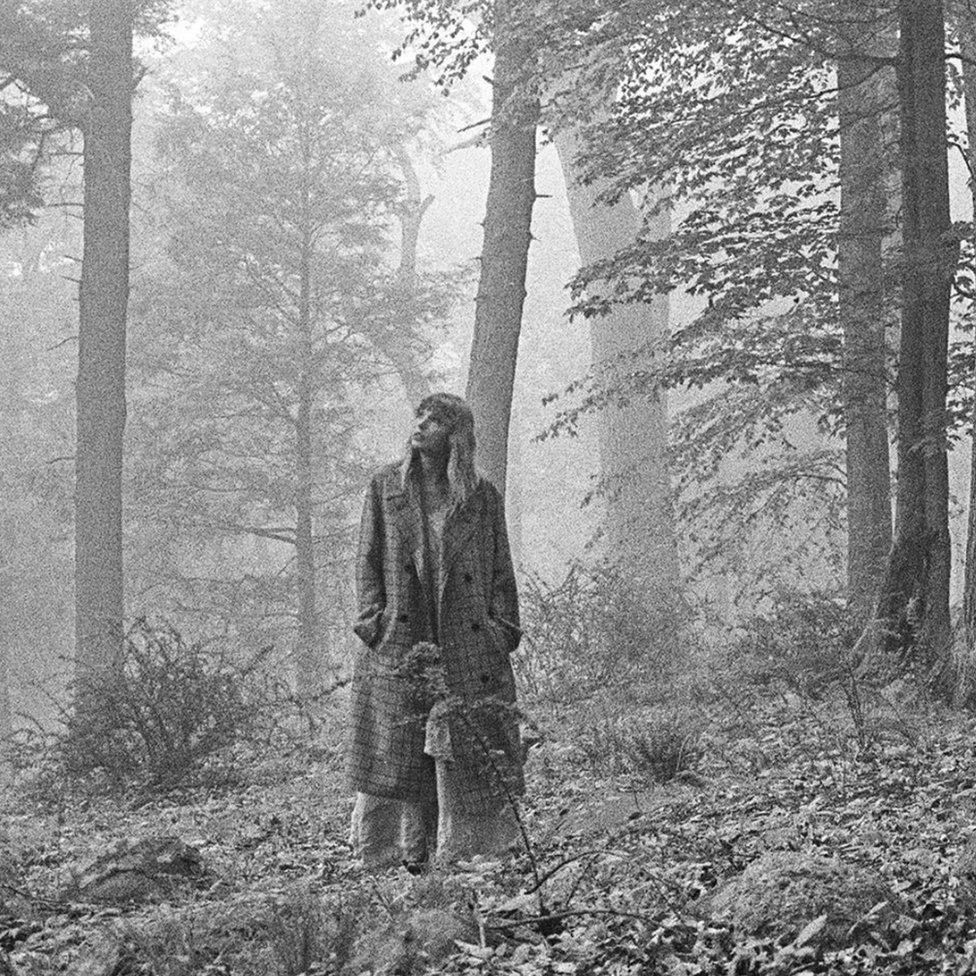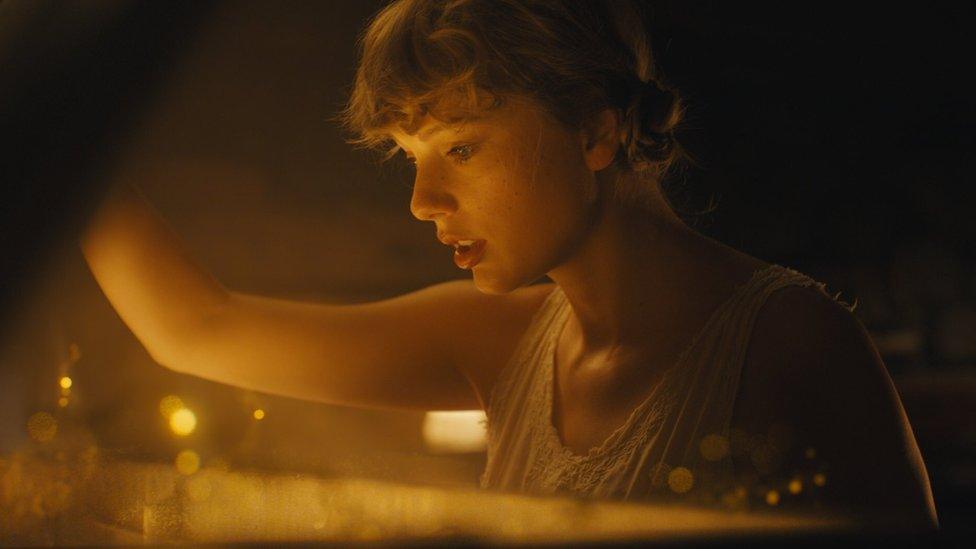Taylor Swift's new Folklore album sees the singer go indie
- Published

Taylor Swift in the artwork for Folklore
The lockdown has made many of us step back and take stock.
The sudden, seismic change to our lifestyles, the narrowing of our horizons, the inability to escape our families: It's all prompted a wave of self-reflection and re-evaluation.
Taylor Swift was not immune.
In April, she posted a photo to Instagram with the caption, external: "Not a lot going on at the moment." Twelve weeks later, she's written and recorded an entirely new album, Folklore - a record that fills the void left by a summer of cancelled festival appearances, including a headline slot at Glastonbury.
"In isolation my imagination has run wild," she writes in the liner notes. "Picking up a pen was my way of escaping into fantasy, history, and memory."
Fittingly, it's a low-key, sombre record, looking back at old flames and old mistakes - some real, some imagined.
The Technicolor exuberance of last year's Lover is entirely gone. In its place are muted pianos, mournful harmonicas and finger-picked guitars. This is Swift's indie album.

The star says she did her own hair and make-up while filming the video for the lead single, Cardigan
The signs were there in her choice of collaborators - chiefly Aaron Dessner of The National, whose heartfelt and quietly anthemic songs have regularly featured on Swift's playlists, is a co-writer or producer on 11 of the album's 16 songs.
Bon Iver's Justin Vernon crops up for a duet on Exile - a delicate ballad that paints a failing relationship as a territorial war - while the cast list is completed by Swift's frequent collaborator Jack Antonoff, who she says "is basically musical family at this point".
The impact of the pandemic is most apparent on Epiphany - whose second verse is a tribute to health workers working under pressure in times of crisis.
"Something med school did not cover," sings Swift, over sustained minor key chords. "Someone's daughter, someone's mother / Holds your hand through plastic now / 'Doc, I think she's crashing out'."
But her gaze is also turned inwards. These are songs about childhood adventures and teenage feuds. There affectionate portraits of ex-lovers and - naturally - a few scores to settle.
On My Tears Ricochet, she even imagines her own funeral, and how her detractors will feel when she's gone.
"If I'm dead to you why are you at the wake? / Cursing my name / Wishing I'd stayed," she sings, more with resignation than anger.

Bon Iver's Justin Vernon (left) and The National's Aaron Dessner are key collaborators on the record
The most upbeat song, The Last Great American Dynasty, tells the story of the eccentric socialite and patron of the arts, Rebekah Harkness.
At one time the richest woman in America, she was known for keeping a pet racoon and filling her fish tank with Scotch. She once turned up at JD Salinger's house, dressed as a cleaner, convinced she could persuade the reclusive author to set his stories to music.
As Swift sings it, she also stole her neighbour's dog in the midst of a feud and dyed its fur lime green. Oh, and Swift now lives in her former mansion in Rhode Island, external.
You get the impression she'd secretly like to adopt her predecessor's cavalier attitude to public perception.
On Mad Woman, she examines the public vilification she received after her public spat with Kim Kardashian and Kanye West, and wonders what it'd have been like if she'd really let rip: "Now I breathe flames each time I talk / My cannons all firing at your yacht," she sings. "They say 'move on' / But you know I won't."
Being Swift, however, the anger and heartbreak are tempered with romance. She frequently sings of escape, to the Lakes, to her memories, to a lover's arms.
But this is a more subdued singer than we've met before - and she's hit on a rich seam of melancholy that chimes perfectly with the times.

Follow us on Facebook, external, or on Twitter @BBCNewsEnts, external. If you have a story suggestion email entertainment.news@bbc.co.uk, external.
- Published23 July 2020

- Published27 February 2020

- Published24 January 2020
